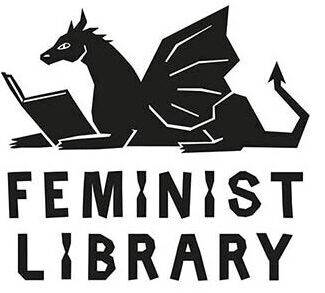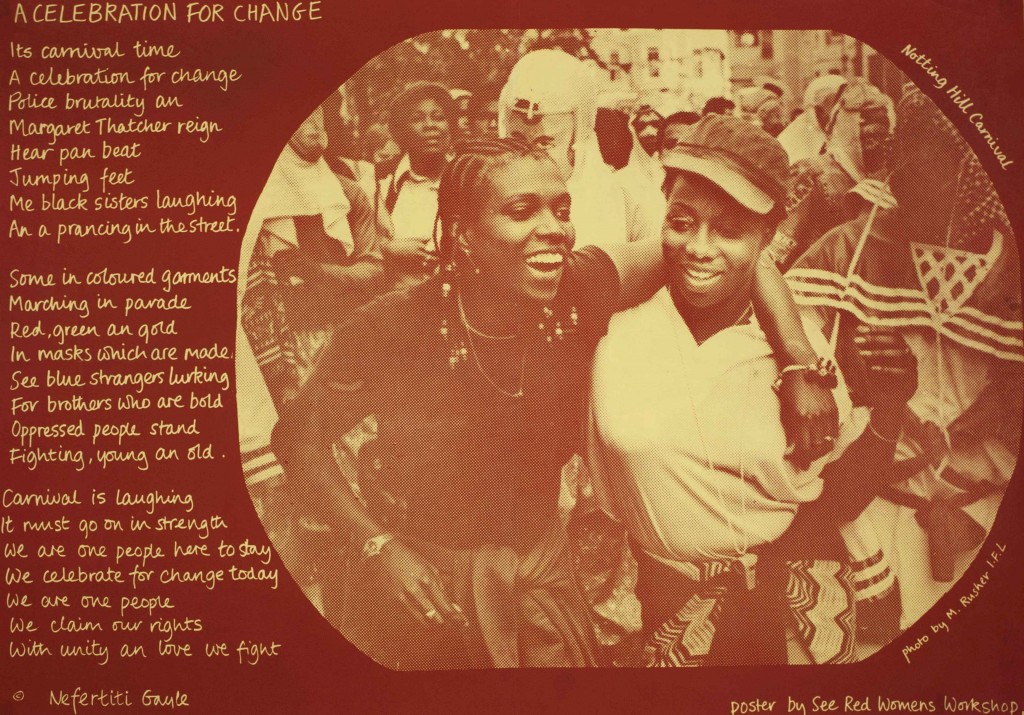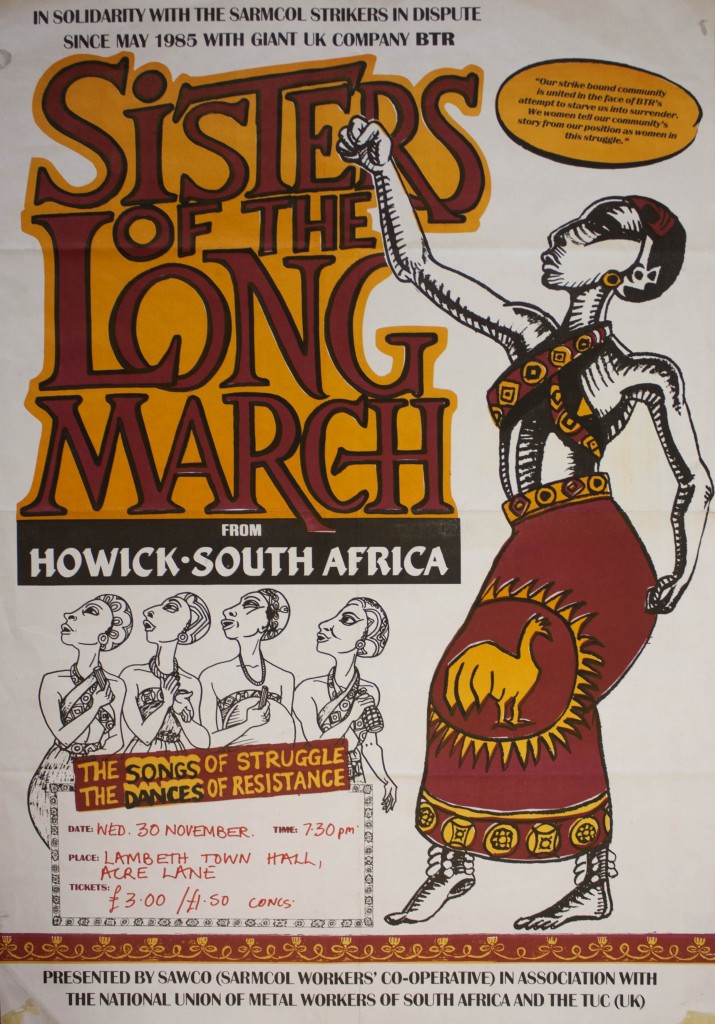WE ARE HERE: How Black Women have been the backbone to radical social movements.
This exhibition runs at the Feminist Library throughout October and November 2020. Here the curators and visitors to the exhibition share some thoughts and highlight their favourite items in the show.
Vanessa Giorgo. My choice is the poster above. I’ve been through the posters’ list so many times, I could say I almost remember them by heart. Among the ones that made a greater impact, there was one which combined feelings of rejoicing and pain at the same time. Pain from the burden of the past and joy from the strength and resistance shown. A community created among people of parallel beliefs, morals and courage to be who we are. A simple image, with the nostalgic sepia colours, and a beautiful poem by Nefertiti Gayle, dwelling on this specific emotional contrast. However, a quick research on the poetess, reveals almost nothing about her; quite interesting. So much more yet to be addressed, and so much to celebrate for.
Maria Riga. The one item, which forms part of a larger collection in the Feminist Library’s Black History Month exhibition—WE ARE HERE that captured my attention, was a vibrant poster with the title: Sisters of the Long March; From Howick to South Africa.
Fire; was my initial thought. Solidarity and sanguineness were powerfully amalgamated in that (full of unknown information to me at the time) picture. What could be the nexus between Howick and South Africa, I wondered. I felt encouraged; if not urged, without undergoing any harangue though, to put both my skein of excuses, as well as my pang of guilt away and join the Sisters’ of the Long Run spirit in their dances of freedom and songs of resistance. At that moment, that poster wiped any natural propensity for mental and physical torpor out of my mind. I wanted to learn the steps to the Sisters’ dances and the lyrics to their songs.
Education. Inspiration. I was in the right place. I could take up those arms and vitiate the malady of encroachment, in the hope of seeing more and more sisters winning their rightful place in our society, as we’ve had enough of being called harridans, viragos, and vixens; of any colour, race, or shape. We are the daughters of the witches they couldn’t burn.


